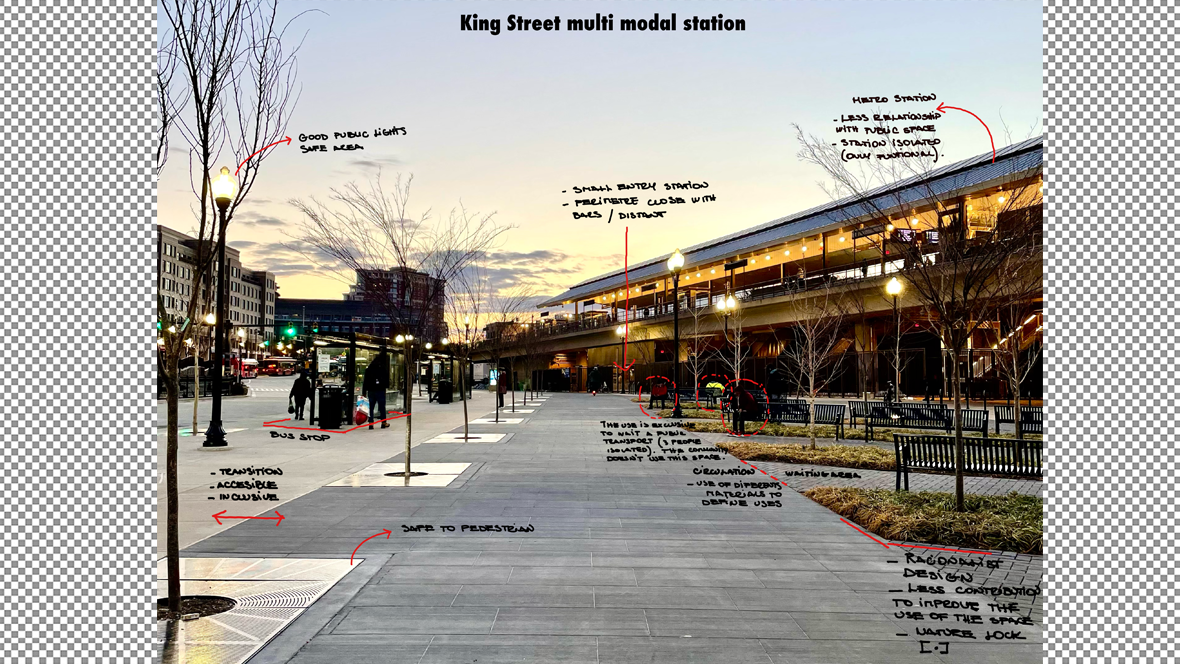Transatlantic Architectural Discourse

Comparative Urbanism
2022: The Healthy City
In this seminar, students will explore and understand the concept of healthy cities, its current challenges, and possible actions and interventions. In addition, students will design and develop a collaborative group research project through comparative research with the aim to identify and analyze a specific problem related to the concept of “The Healthy City” in both Germany and the United States, and each group will conclude their research with some recommendations and visions. It is an introduction to research methodologies in urban design with a focus of gaining fresh empiric data (e.g. observations, counting, interviews, comparative studies etc.). Research methods leading to a theoretical framework and allowing to contextualize the empiric findings will be applied by students.
The results of the seminar were summarized and reflected in an online publication.
First Task: Exploring Public Spaces
Streets, parks, plazas, alleys, transit systems, waterways, civic infrastructure, etc. – public spaces can be symbolic or ordinary, functioning or broken, ostentatious or modest, fresh or worn, enduring or ephemeral. You are asked to visit several public spaces in Wiesbaden or Alexandria. Based on lectures and discussions in the first meeting, they examined and documented these spaces with a critical perspective. How are they structured, used, and oriented? And more specifically, how do they may (or do not) contribute to a “healthy city”?
Workshop: Define & Cultivate
Based on course lectures, discussions and through discourse with the respective teams, the students evolved their research to find data (in the broadest definition of the term), identify narratives, and collect other information to refine their understanding of their proposed topic and selected public spaces. In preparation of the first critique, they should ask themselves the following questions: What? Where? How? Why?
Based on what the students had prepared, which is their research proposal, they had to formulate 2 to 3 possible expected results of your research. These possible results are the hypothesis of their study and could be positive, negative or even neutral. They could be proper results, new concepts, or even new questions to the topic they were working with.
Their presentations were discussed in an international workshop with guests from the respective universities and cities.






